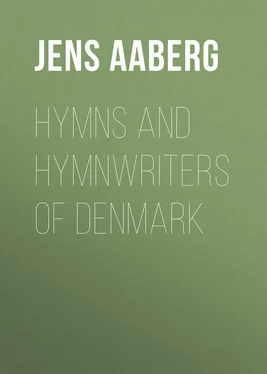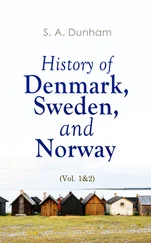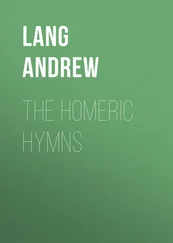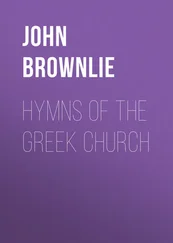Jens Aaberg - Hymns and Hymnwriters of Denmark
Здесь есть возможность читать онлайн «Jens Aaberg - Hymns and Hymnwriters of Denmark» — ознакомительный отрывок электронной книги совершенно бесплатно, а после прочтения отрывка купить полную версию. В некоторых случаях можно слушать аудио, скачать через торрент в формате fb2 и присутствует краткое содержание. Жанр: foreign_antique, foreign_prose, Историческая проза, на английском языке. Описание произведения, (предисловие) а так же отзывы посетителей доступны на портале библиотеки ЛибКат.
- Название:Hymns and Hymnwriters of Denmark
- Автор:
- Жанр:
- Год:неизвестен
- ISBN:нет данных
- Рейтинг книги:3 / 5. Голосов: 1
-
Избранное:Добавить в избранное
- Отзывы:
-
Ваша оценка:
- 60
- 1
- 2
- 3
- 4
- 5
Hymns and Hymnwriters of Denmark: краткое содержание, описание и аннотация
Предлагаем к чтению аннотацию, описание, краткое содержание или предисловие (зависит от того, что написал сам автор книги «Hymns and Hymnwriters of Denmark»). Если вы не нашли необходимую информацию о книге — напишите в комментариях, мы постараемся отыскать её.
Hymns and Hymnwriters of Denmark — читать онлайн ознакомительный отрывок
Ниже представлен текст книги, разбитый по страницам. Система сохранения места последней прочитанной страницы, позволяет с удобством читать онлайн бесплатно книгу «Hymns and Hymnwriters of Denmark», без необходимости каждый раз заново искать на чём Вы остановились. Поставьте закладку, и сможете в любой момент перейти на страницу, на которой закончили чтение.
Интервал:
Закладка:
This book bears a dedication to the queen, Charlotte Amalia. She was German by birth and a pious, able and distinguished woman in her own right. Kingo praises her especially for her effort to learn and speak the Danish language. In this respect, he declares, “Her Majesty put many to shame who have eaten the king’s bread for thirty years without learning to speak thirty words of Danish, because they hold it to be a homespun language, too coarse for their silky tongues”.
Spiritual Song-Choir, Part IIcontains twenty hymns and seventeen “sighs”, thus outwardly following the arrangement of Part I. But the content is very different. The hymns are songs of penitence, repentance and faith. They show mastery of form, a wealth of imagery, a facility for concentrated expression and a range of sentiment from stark despair to the most confident trust that is, perhaps, unequalled in Danish poetry. It is an embattled soul that speaks through these hymns, a soul that has faced the abyss and clung heroically, but not always successfully, to the pinnacle of faith. One feels that the man who penned the following lines has not merely imagined the nearness of the pit but felt himself standing on the very brink of it.
Mountains of transgressions press
On my evil burdened shoulders,
Guilt bestrews my path with boulders,
Sin pollutes both soul and flesh,
Law and justice are proclaiming
Judgment on my guilty head,
Hell’s eternal fires are flaming,
Filling all my soul with dread.
Of an even darker mood is the great hymn: “Sorrow and Unhappiness”, with the searching verse:
Is there then no one that cares,
Is there no redress for sorrow,
Is there no relief to borrow,
Is there no response to prayers,
Is the fount of mercy closing,
Is the soul to bondage sold,
Is the Lord my plea opposing,
Is His heart to sinners cold?
The poet answers his questions in the following stanzas by assuring himself that the Sun of God’s grace can and will pierce even his “cloud of despair”, and that he must wait therefore in quietness and trust:
O my soul, be quiet then!
Jesus will redress thy sadness,
Jesus will restore thy gladness,
Jesus will thy help remain.
Jesus is thy solace ever
And thy hope in life and death;
Jesus will thee soon deliver;
Thou must cling to that blest faith.
The uncertainty of life and its fortunes furnished a favored theme for many of his hymns, as for instance in the splendid —
Sorrow and gladness oft journey together,
Trouble and happiness swift company keep;
Luck and misfortune change like the weather;
Sunshine and clouds quickly vary their sweep.
which is, poetically at least, one of his finest compositions. The poet’s own career so far had been one of continuous and rather swift advancement. But there was, if not in his own outward fortune, then in the fortunes of other notables of his day, enough to remind him of the inconstancy of worldly honor and glory. Only a few months before the publication of his hymns, Leonora Christine Ulfeldt, the once beautiful, admired and talented daughter of Christian IV, had been released from twenty-two years of imprisonment in a bare and almost lightless prison-cell; Peder Griffenfeldt, a man who from humble antecedents swiftly had risen to become the most powerful man in the kingdom, had been stript even more swiftly of all his honors and thrown into a dismal prison on a rocky isle by the coast of Norway; and there were other and well known instances of swift changes in the fortunes of men in those days when they were subject not only to the ordinary vicissitudes of human existence but to the fickle humor of an absolute monarch. It is, therefore, as though Kingo at the height of his own fortune would remind himself of the quickness with which it might vanish, of the evanescense and vanity of all worldly glory. That idea is strikingly emphasized in the following famous hymn:
Vain world, fare thee well!
I purpose no more in thy bondage to dwell;
The burdens which thou hast enticed me to bear,
I cast now aside with their troubles and care.
I spurn thy allurements, which tempt and appall;
’Tis vanity all!
What merit and worth
Hath all that the world puts so temptingly forth!
It is naught but bubbles and tinctured glass,
Loud clamoring cymbals and shrill sounding brass.
What are their seductions which lure and enthrall;
’Tis vanity all!
O honor and gold,
Vain idols which many with worship behold!
False are your affluence, your pleasure and fame;
Your wages are envy, deception and shame,
Your garlands soon wither, your kingdom shall fall;
’Tis vanity all!
O carnal desire,
Thou tempting, consuming and treacherous fire,
That catches like tinder and scorches like flame,
Consigning the victim to sorrow and shame,
Thy honeyest potion is wormwood and gall;
’Tis vanity all!
Then, fare thee farewell,
Vain world, with thy tempting and glamorous spell!
Thy wiles shall no longer my spirit enslave,
Thy splendor and joy are designed for the grave
I yearn for the solace from sorrows and harm
Of Abraham’s arm!
There shall all my years
I bloom like the lily when summer appears;
There day is not ruled by the course of the sun
Nor night by the silvery light of the moon;
Lord Jesus shall shine as my sun every day
In heaven for aye.
This is an eloquent farewell, clothed in all the expressive wealth of language and imagery of which Kingo was such a master. One cannot repress the feeling, however, that it presents a challenge rather than a farewell. A man that so passionately avows his repudiation of the world must have felt its attraction, its power to tempt and enthrall. He fights against it; the spirit contends with the flesh, but the fight is not easy. And it is in part this very human trait in Kingo that endears his song to us. What Christian does not recognize some of his own experiences in the following characteristic song:
Ever trouble walks beside me, [2] fn_2 Another translation: “Ever is a peril near me” by C. Doving in “Hymnal for Church and Home”.
Ever God with grace provides me,
Ever have I fear and grief,
Ever Jesus brings relief.
Ever sin my heart accuses,
Ever Jesus help induces,
Ever am I weighed with care,
Ever full of praise and prayer.
So is joy by grief attended,
Fortune with misfortune blended;
Blessings mixed with grief and strife
Is the measure of my life.
But, O Jesus, I am crying:
Help that faith, on Thee relying,
Over sin and grief alway
Shall prevail and gain the day.
Some statements in this hymn have frequently been criticized as contradictory, for how can one be “always” full of care and “always” full of praise and prayer? The terms cancel each other. But are not such contradictions expressive of life itself? Few – if any – are wholly one thing or wholly another. People are complex. Their joys struggle with their sorrows, their most earnest faith with their doubts and fears. It brings Kingo nearer to us to know that he shared that struggle. His songs have appealed to millions because they are both so spiritual and so human. How expressive of human need and Christian trust are not the following brief lines:
Lord, though I may
The whole long day
Find no relief from sorrow,
Yea, should the night
Afford no light
To ease my plight —
Thou comest on the morrow.
Интервал:
Закладка:
Похожие книги на «Hymns and Hymnwriters of Denmark»
Представляем Вашему вниманию похожие книги на «Hymns and Hymnwriters of Denmark» списком для выбора. Мы отобрали схожую по названию и смыслу литературу в надежде предоставить читателям больше вариантов отыскать новые, интересные, ещё непрочитанные произведения.
Обсуждение, отзывы о книге «Hymns and Hymnwriters of Denmark» и просто собственные мнения читателей. Оставьте ваши комментарии, напишите, что Вы думаете о произведении, его смысле или главных героях. Укажите что конкретно понравилось, а что нет, и почему Вы так считаете.












